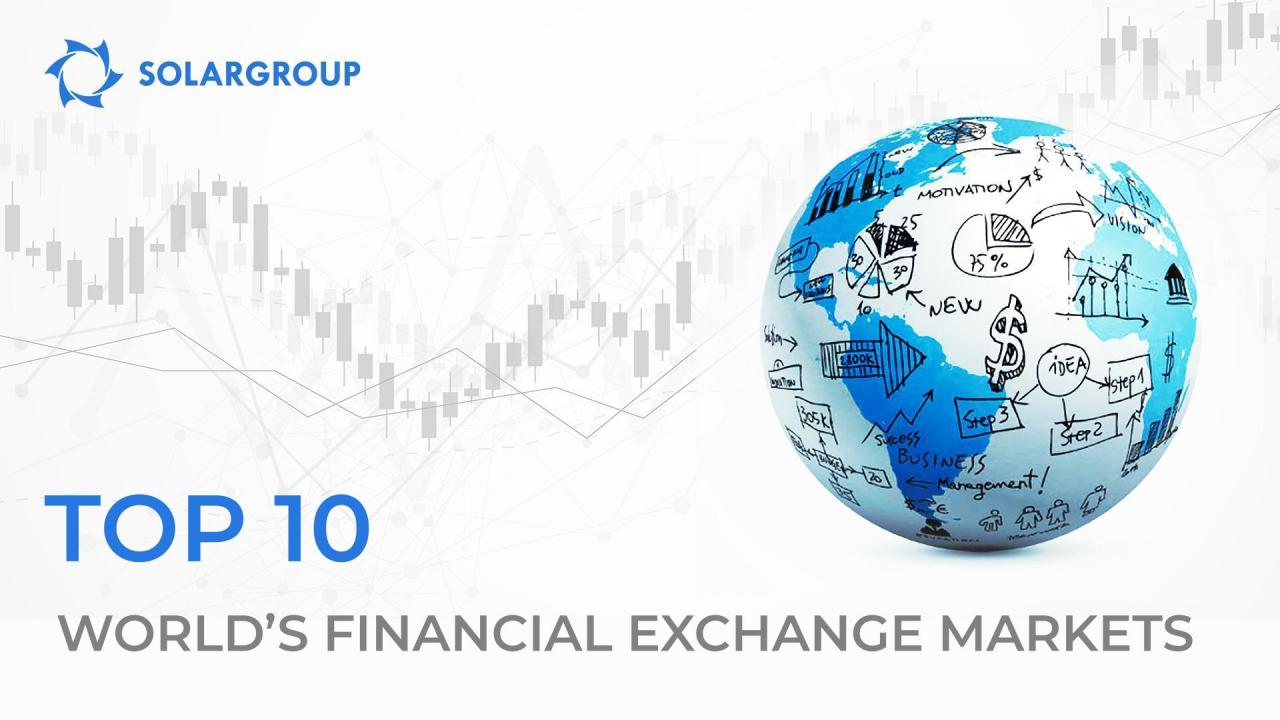
TOP 10 world's financial exchange markets
You probably know that time-limit trading of currencies and other financial assets is conducted on the world's financial exchange markets. Each continent has historically shaped its own leaders, but 77% of the world's stock market capitalization worth of $65.6 trillion belongs to the 10 largest exchanges in the world. Today we will get to know these financial giants:
1. New York Stock Exchange (NYSE) is a real "giant" among stock exchanges and a part of the Intercontinental Exchange Holding Group. The NYSE listing has 2,292 organizations, and the capitalization reaches the record high $23 trillion. Daily trading operations with a total volume of $1.5 trillion are conducted here. Impressive numbers!
2. National Association of Securities Dealers Automated Quotation (NASDAQ) holds place two in the world in terms of capitalization with a result of more than $11 trillion. There are 3,004 issuers listed on the exchange, and the daily trading turnover exceeds $1.3 trillion.
3. Japan Exchange Group (JPX) is a Japanese exchange with a market capitalization of over $6 trillion. The list of issuers includes the maximum possible number of companies – 3,628. The daily trading turnover remains stable at $0.5 trillion.
4. Shanghai Stock Exchange (SSE) is the largest exchange in mainland China that officially holds the status of a nonprofit organization. The participants can trade in both yuans and dollars by choosing the corresponding type of shares. The capitalization of SSE reaches $4.5 trillion, and the turnover of trading operations is $470 billion daily.
5. Euronext (EU) is a joint platform of the largest European exchanges. Its capitalization is comparable to the SSE level amounting to $4.3 trillion. Every day, there are share transactions worth more than $200 billion.
6. London Stock Exchange (LSE) is an exchange with the shares of 50% world companies listed. It is considered to be the most international, and its capitalization amounts to $4.3 trillion. The number of issuers exceeds Euronext twice.
7. Hong Kong Stock Exchange (HKEX) (China) is the most powerful Chinese exchange that has holded its position for many years. Its capitalization exceeds the point of $4.2 trillion, and its daily turnover reaches the level of $205 billion. HKEX unites several Chinese exchanges being the leader in the number of issuers in its region.
8. Shenzhen Stock Exchange (SZSE) (China) operates under the control of the China Securities Regulatory Commission being an influential global player. Its participants have access to the shares of 2,115 issuers, and SZSE's capitalization amounts to $3 trillion. The trading platform ChiNext that focuses on fast-growing innovative companies operates on the basis of the exchange.
9. Deutsche Börse (Germany) - the Deutsche Börse Exchange Group has been founded as part of the Frankfurt Stock Exchange. Being an influential player in the European market, it significantly underperforms in terms of capitalization as compared to the Asian exchanges. It is characterized by low daily turnover and a modest listing that includes only 509 companies.
10. Bombay Stock Exchange (BSE) (India) is characterized by an impressive list of issuers including 2,663 participants, but a low capitalization of $2.1 trillion. The daily trading amounts to an average of $45 billion.
Moscow Exchange (Russia) - in June 2018 ranked 22nd in the list of 88 world exchanges. It enables trading various financial instruments including futures contracts and shares. Its capitalization amounts to about $620 billion, and the trading operations volume is $12 billion per day.
Every day, the players of the world's leading exchanges get access to the shares of the largest companies and make trading operations worth more than $5 trillion, thus shaping 40 % of the world's turnover. The two leading exchanges, the NYSE and NASDAQ, account for 22% of the total trading volume.
The leading TOP 10 exchanges offer the shares of more than 40 thousand issuers, and the leader in their number is the Japanese JPX Exchange that features the offers from 7% of the world's issuers.
Using the opportunities of the exchanges in a competent way, many experienced investors successfully invest funds and achieve financial goals. Unfortunately, the risk of losing your savings is just as high, so each broker creates their own strategy for success.
What investment strategy have you chosen?

